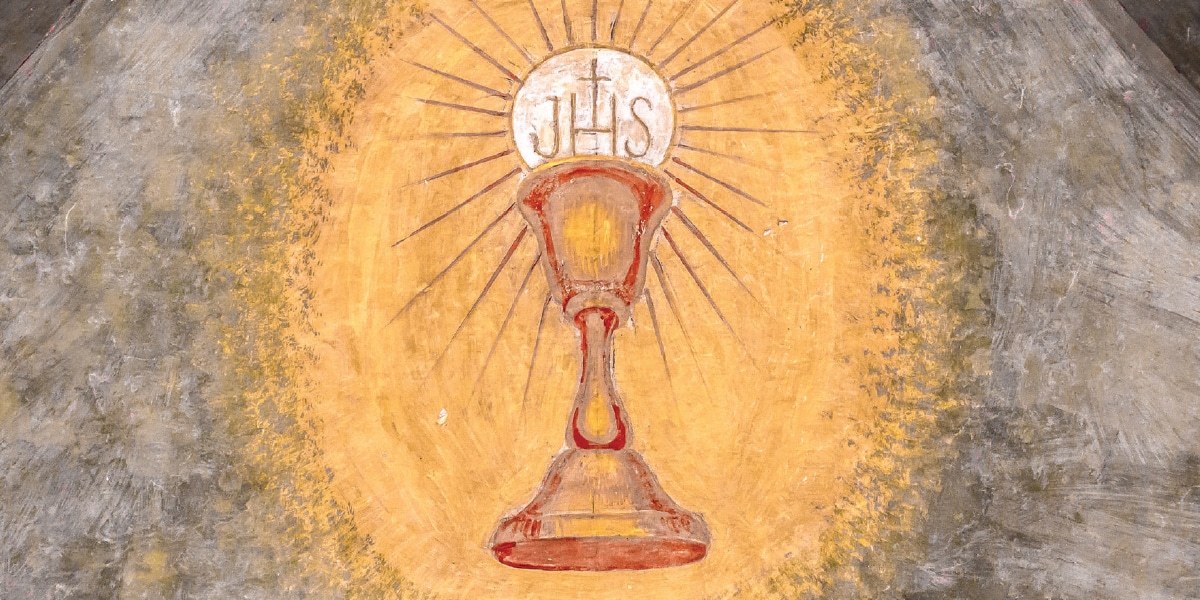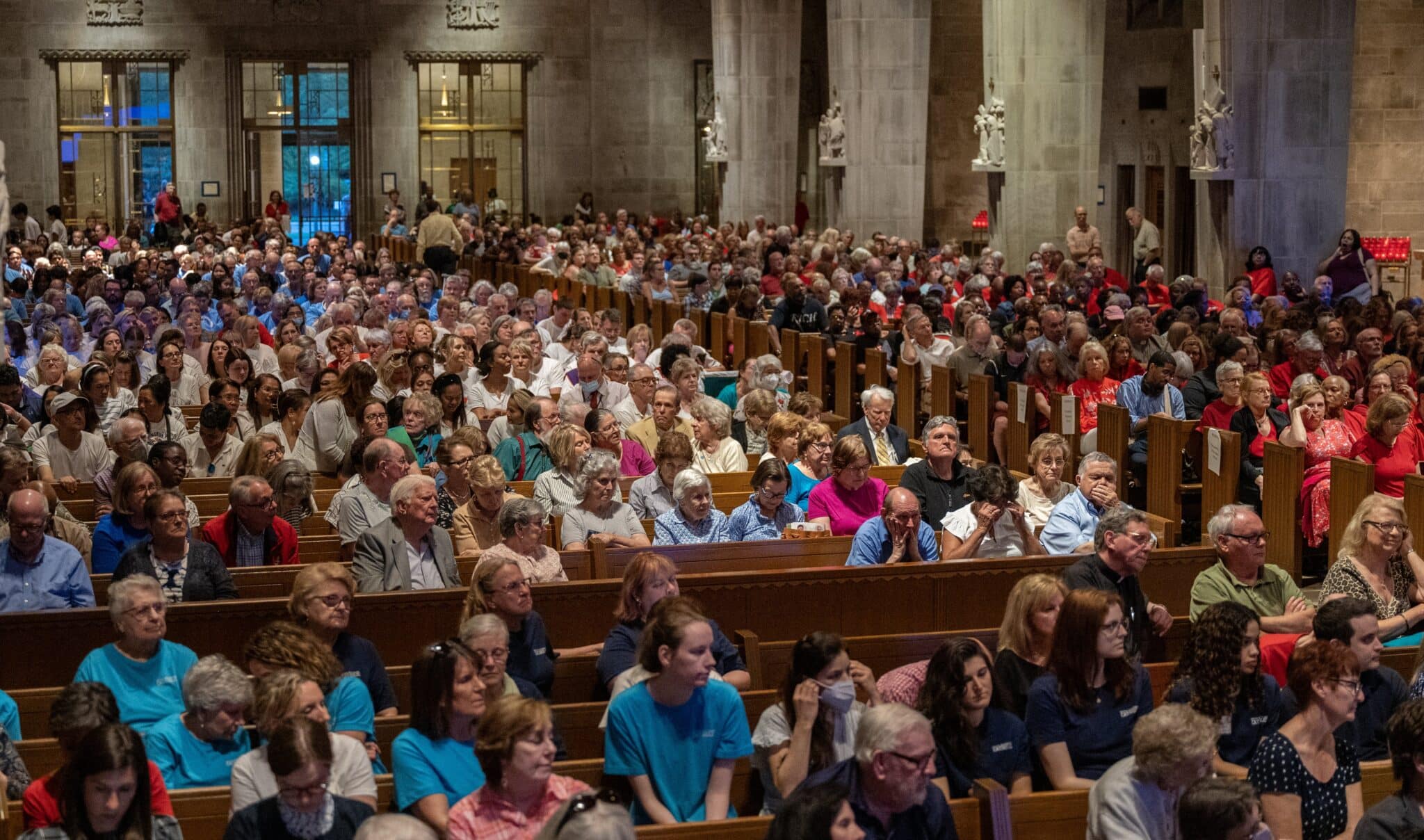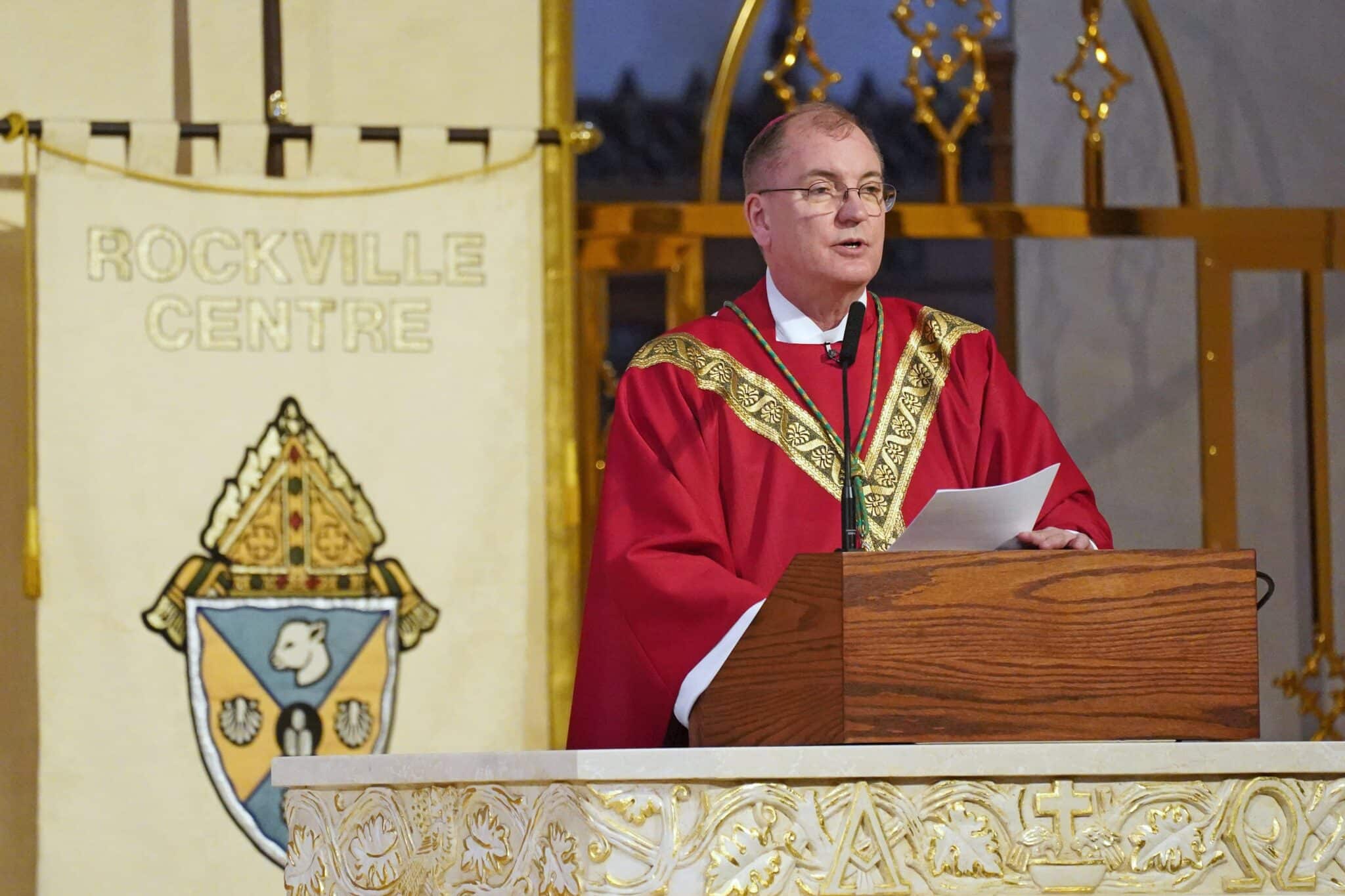I am in the process of becoming a Catholic but am having difficulty accepting closed Communion. As a result, I feel compelled to leave after the homily because I feel left out, having to watch something I cannot share. I recently made the mistake this past weekend of going on a retreat where I was the only non-Catholic. Not being able to take the sacrament during Mass made the retreat such a disappointing, uncomfortable experience that I briefly considered returning to my former church.
Parishes need to figure out a way to address this issue. Exclusion can be a major impediment to faith for many people.
Thanks for your heartfelt letter. When the priest, deacon, or extraordinary minister of the Eucharist holds up the consecrated host and says, “Body of Christ,” the person receiving Communion responds, “Amen,” meaning “I believe that.”
If I were distributing Communion and someone responded, “You say so” or “Whatever,” I think that I would have good reason to conclude that this individual at that moment is not properly disposed to receive the Eucharist.
It’s not a matter of reward or punishment but rather of simple honesty about whether the individual communicant accepts what the Church believes is happening then. What would your “Amen” have meant if you had received Communion during the retreat you described? Won’t it mean something different after you are baptized a Catholic or been received into full communion with that Church?
Is your hunger to receive the Eucharist not an obstacle to becoming a Catholic but rather already a sign that you believe Christ is truly present there?
What Does the Bible Teach About Social Justice?
According to one of my friends, the Bible generally teaches that, as individuals, we need to be just to our neighbors, but it does not teach directly about social justice, a term that has been invented to cover some political agenda that cannot succeed on its own power. Is that true?
Absolutely not. Justice is not simply a matter of my conscious choices but includes everything that I am willing to accept as “normal” or how I describe “That’s the way life is.” People who say either of those things usually find the status quo perfectly to their benefit. Thus they tend to consider anyone who questions it as trying to promote some political change that they cannot bring about any other way.
Slavery, human trafficking, and nuclear war, for example, are not “normal” or “just,” no matter how often they occur. All of them are based on lies that people tell themselves.
Biblical prophets do not primarily foretell the future; instead, they point out the eventual consequences of disregarding God’s standards. Although genuine prophets speak for God, they are often dismissed as having some hidden and/or wrong political agenda. Every moral decision has consequences beyond the obvious ones for those who make them. Do people making inexpensive shirts in Bangladesh or shoes in Vietnam receive a just wage or work under safe conditions? How could I know? Why should I even care?
Does sexist or racist language really hurt anyone if no one targeted by it actually hears it? Yes. It affirms a kind of “normal” that God does not recognize, no matter how much this individual or some group may benefit from it.
Justice must mean more than “I am getting what I think that I deserve, what I feel that I am entitled to.” The people condemned for refusing to feed the hungry, clothe the naked, and perform other corporal works of mercy (Mt 25:31–46) were simply acting according to a warped sense of “normal.” On the other hand, people praised by Jesus for doing those things had a sense of normal close to God’s sense of normal. The people who did all those things were simply doing what they recognized as normal.
No society will ever be perfectly just toward all its members, but that does not justify dismissing the whole idea of social justice as a failed political idea.
Choices have consequences—now and in the long term.
‘Why Go to Confession?’
If I sincerely confess my sins and receive absolution, am I assured of going to heaven? According to a good friend of mine, our sins are indeed forgiven, but we still have to “pay” for them. He says that explains why purgatory exists. If my friend is correct, am I wasting my time by going to confession?
Your friend is not totally correct. If I steal $100 from you and confess that as a sin, do I have to do anything else? Yes, I need to get that $100 back to you. Repentance does not erase the past but rather sees it in a new way and prompts us to take appropriate action.
Purgatory is not simply a place of punishment, a short-term version of hell, but rather a place of cleansing or purification. If I don’t like the folks with whom I am sitting at the eternal banquet, am I truly ready to be there?
If I am basically a good person, but when I die I am still prejudiced against people from a foreign country, I might protest at being seated next to or across from such a person. Purgatory heads off such a protest because only in heaven will God truly be enough for me without any conditions. Until that is true, being in God’s presence constantly would itself be a form of punishment.
Disposing of Religious Objects
How should I dispose of holy cards or religious objects (such as Miraculous Medals) that I no longer want?
Give them away, burn them, or bury them.









2 thoughts on “Why Closed Communion?”
I think that confession is a wonderful guide for children. I believe after 18 when one is an adult it is no longer necessary and should not be a requirement to receive communion. I discussed all of this with a monsenior who was our parish priest. His response was that is ok. If that is what you believe then don’t come to confession and please do go to receive communion.
Our current priest is disliked by most of the people going to mass. Each week there are fewer in attendance. I feel he is not an image of Christ in any way. At the last mass he said he cdidn’t like our current Pope!
. Who asked him???? I don’t believe he believes in the separation of Church & State because he always brings up politics at mass. He is young but does not relate to his parishioners. He also obviously hates and is frightened of women.
I feel sorry for him but sorrier the people who love to go to Church. I am one who does not go to mass any longer I usually go after mass so I don’t have to see or hear him.